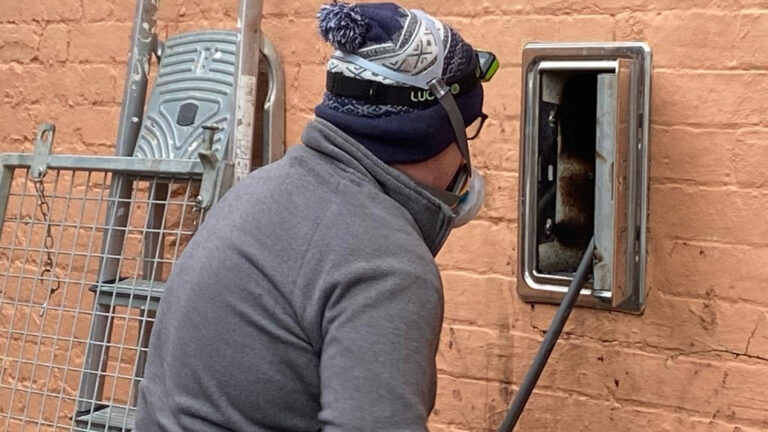
New civil sanctions introduced to strengthen smoke control enforcement in Wales
Significant changes to Smoke Control Area (SCA) enforcement in Wales came into effect at the end of July 2025, as part of the Environment (Air Quality and Soundscapes) (Wales) Act 2024.
These changes represent a major shift in how local authorities can tackle irresponsible burning practices. The changes aim to create a more effective enforcement framework where actionable, meaningful methods of behavioural improvement can be implemented.
A small section of some of the most heavily populated areas of Wales are SCAs – you can find out if you are in a SCA on the Welsh Government’s interactive online map.
What has changed?
The main change is a move from criminal sanctions to civil monetary penalties for anyone found to be emitting smoke from their chimney within a smoke control area in Wales. This switch is designed to address enforcement challenges, as criminal offences were historically difficult to administer. Under these changes, local authorities can take enforcement action against individuals burning irresponsibly and dangerously much more effectively.
The civil standard requires enforcement officers to apply the balance of probabilities, as opposed to criminal sanctions which requires the offence to be proven beyond all reasonable doubt. This means if evidence points towards an individual offending by emitting smoke from their chimney, they will be liable to a civil sanction. Previously, there had to be proof beyond a reasonable doubt that an offense occurred, making enforcement much more complex and difficult.
Councils are still required to collect evidence that proves smoke is being emitted from a chimney. This evidence can be submitted by neighbours or captured by enforcement officers directly and could be through photos or videos of smoke being emitted from a chimney.
New enforcement process
Penalties range from a minimum of £175, to a maximum of £300 per notice of intent. This means that if multiple offenses occur and are evidenced, multiple penalties can pile up. Councils have been given the freedom to develop and document their own policy regarding financial penalties, considering the seriousness and repetition of the smoke emissions. Any income from these financial penalties can be kept by the local authority.
Clear, step-by-step guidance has been provided by the Welsh Government, ensuring councils are equipped to appropriately tackle offenders:
- Speak to the householder or business, offering advice – this follows Welsh guidance of educating offenders before issuing penalties, which should only be used as a last resort
- Issue an improvement notice – this is not a legal requirement, but councils are asked to support Welsh Government’s advice-led approach
- If smoke emissions continue, issue a notice of intent – this is the final step before financial penalties are imposed
- Issue a final notice with a financial penalty – this can be up to £300 per notice of intent given
No exceptions
These changes also include the removal of exceptions included in the Clean Air Act 1993 where if an individual used an appliance or fuel that had been approved by Welsh ministers, then they would not be subject to a criminal sanction. Rather than keeping these exceptions in place for civil sanctions, they have been removed – allowing councils to more effectively prevent smoke emissions.
Reporting requirements for councils
Welsh councils are now also required to publish annual progress reports, including air quality monitoring results and updates on pollution reduction plans. This aligns with Welsh Government’s aims to continue improving air quality, encouraging transparent report on local air quality conditions across all local authorities.
Supporting responsible burning
These changes align with industry best practices and the recommended advice that HETAS, alongside manufacturers, installers, sweeps, and servicing technicians share with consumers every day.
The HETAS Advice Hub contains a range of advice for solid fuel appliance owners – all free of charge.
Whether your customers want to know more about the rules and regulations, what they can and can’t burn, or just want some top tips – the HETAS Advice Hub has all the information they need.
Engagement-based enforcement
Whilst the legislation changes primarily affects enforcement by local authorities, Welsh Government have made their focus of fair enforcement and education clear, underscoring the need for:
- Ensuring customers are well-informed about smoke control area requirements
- Promoting the use of high-quality fuels and modern, efficient solid fuel appliances
- Highlighting the benefits of responsible, safe burning
The shift to civil sanctions makes enforcement easier and a more viable option for local authorities. An education-based approach, where those burning irresponsibly are first educated and supported with improving their behaviours will enable a rounded, supportive approach to enforcement.
For the latest news on domestic combustion, government policy, and much more, visit our latest news pages or follow us on social.



